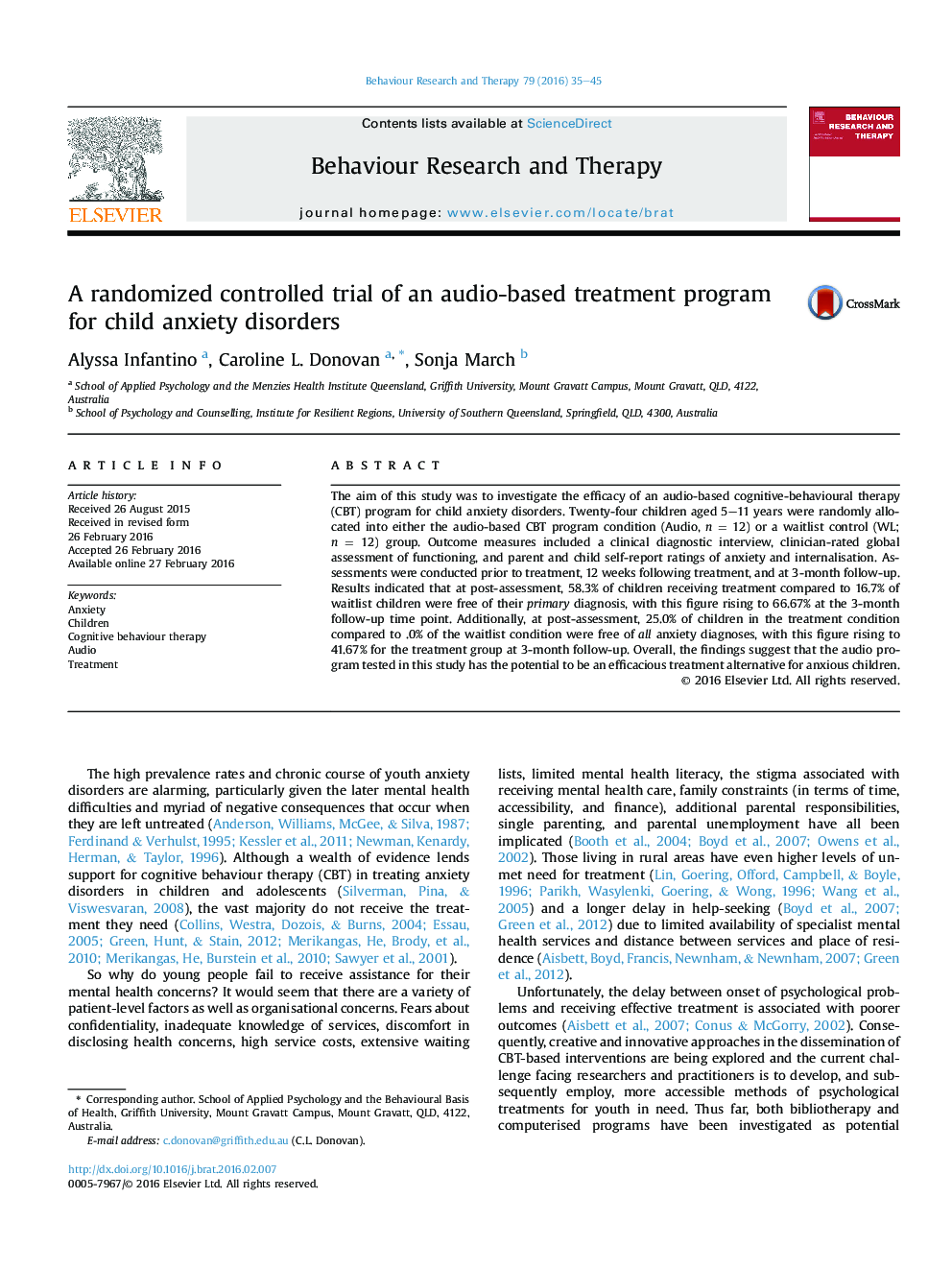| Article ID | Journal | Published Year | Pages | File Type |
|---|---|---|---|---|
| 901782 | Behaviour Research and Therapy | 2016 | 11 Pages |
•This study assessed the efficacy of an audio-based CBT program for child anxiety.•Children were randomly allocated into treatment (Audio) and waitlist (WL) groups.•At post-assessment, 58.3% of Audio children were free of their primary diagnosis.•At 3-month follow-up, 66.67% of Audio children were free of their primary diagnosis.
The aim of this study was to investigate the efficacy of an audio-based cognitive-behavioural therapy (CBT) program for child anxiety disorders. Twenty-four children aged 5–11 years were randomly allocated into either the audio-based CBT program condition (Audio, n = 12) or a waitlist control (WL; n = 12) group. Outcome measures included a clinical diagnostic interview, clinician-rated global assessment of functioning, and parent and child self-report ratings of anxiety and internalisation. Assessments were conducted prior to treatment, 12 weeks following treatment, and at 3-month follow-up. Results indicated that at post-assessment, 58.3% of children receiving treatment compared to 16.7% of waitlist children were free of their primary diagnosis, with this figure rising to 66.67% at the 3-month follow-up time point. Additionally, at post-assessment, 25.0% of children in the treatment condition compared to .0% of the waitlist condition were free of all anxiety diagnoses, with this figure rising to 41.67% for the treatment group at 3-month follow-up. Overall, the findings suggest that the audio program tested in this study has the potential to be an efficacious treatment alternative for anxious children.
